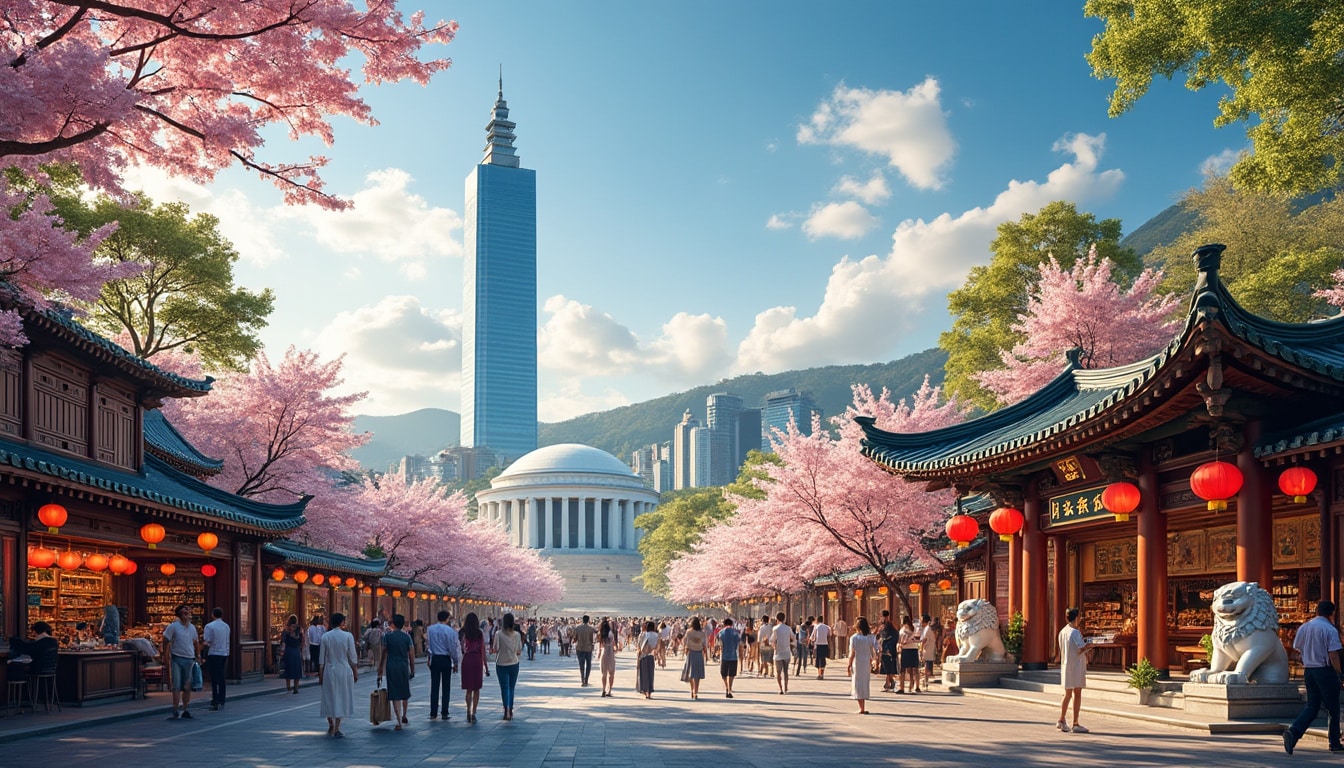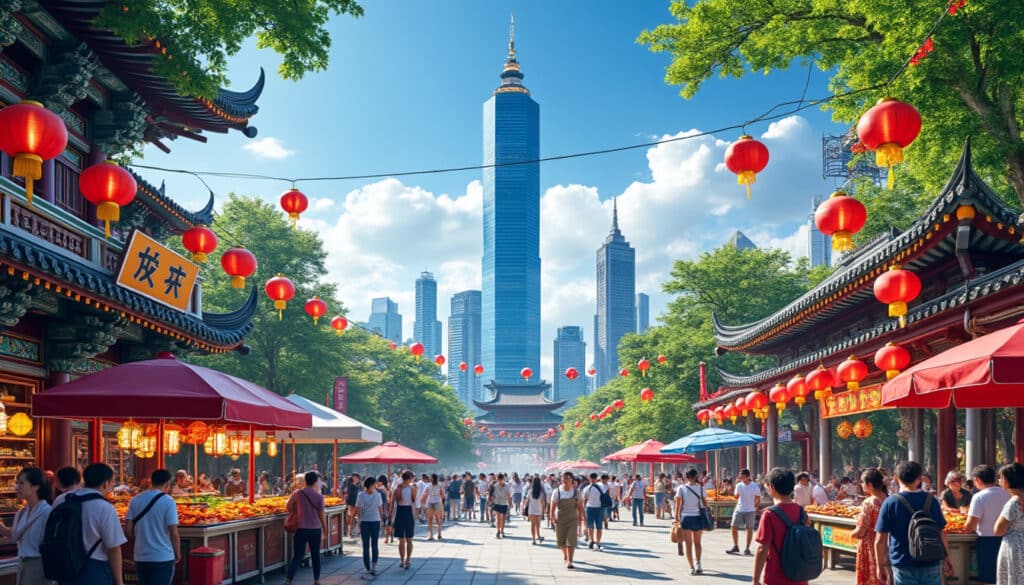The bustling city of Taipei, known for its intricate blend of history, modernity, and cultural richness, stands as a testament to Taiwan’s dynamic past and progressive future. A microcosm of different eras and influences, Taipei’s story is one of indigenous heritage, colonization, development, and resilience. Whether it’s the majestic Taipei 101 piercing the skyline or the fragrant night markets filled with unique delicacies, each corner of Taipei speaks to its storied past. As we delve into the key epochs that have shaped Taipei, we uncover the profound ways in which history has molded this metropolis into the vibrant capital we recognize today.
The Indigenous Foundations and Early Settlements of Taipei
Long before the affluence of skyscrapers and bustling streets, Taipei’s land was home to the indigenous Austronesian tribes. Research suggests that these settler communities roamed the island as early as 8,000 years ago. Known as the goan-chu-bin, or “original inhabitants,” these tribes developed distinct cultural practices that left an indelible mark on the island’s history.
Their way of life, largely revolving around hunting, fishing, and agriculture, was dramatically altered as successive waves of immigrants and colonial powers arrived. By the 17th century, the Dutch began to exert control over parts of Taiwan, establishing a colonial framework that would catalyze significant cultural shifts.

Following the Dutch, the Han Chinese, particularly from the Fujian and Guangdong regions of mainland China, began large-scale immigration to the island. Among them were the Hakka people, whose influence remains visible today, especially in the language and food of the region. Gradually, these settlers integrated with the local communities, introducing their agricultural techniques and establishing trade hubs that would eventually transform Taipei into a pivotal trading center.
Key Influences on Indigenous Culture
As colonial forces vied for control, the native Taiwanese societies experienced profound changes. Various factors played a role, including:
- 🌾 Economic Competition: The introduction of new crops and trade practices altered traditional agricultural methods.
- 🏹 Military Conflicts: Frequent conflicts with colonizers forced natives to adopt new defense strategies or evacuate to less accessible regions.
- 🙌 Cultural Assimilation: Over time, many indigenous traditions and languages faced erosion due to the dominance of Chinese cultural influences.
Today, modern Taipei is still home to many descendants of these original inhabitants, who continue to preserve their rich cultural heritage amidst the urban landscape.
The Colonial Legacy and Urban Development of Taipei
By the time the Qing Dynasty laid its claim on Taiwan in the late 17th century, Taipei began evolving into a hub of political and economic activity. The city officially became a provincial capital in 1886, cementing its status as the center of Taiwanese administrative affairs.
However, it was not long before the winds of change swept through again when the First Sino-Japanese War concluded in 1895, resulting in Taiwan being ceded to Japan. During the 50 years of Japanese rule, the island underwent substantial infrastructure development. The Japanese invested in building roads, railways, and modern facilities, a legacy that is still evident in parts of Taipei’s architecture today.
Ever wonder how the eclectic architecture adds to Taipei’s charm? Discover more about urban features that make Taipei’s landscape unique.
Architectural and Cultural Impacts
The Japanese colonial influence is unmistakably etched into the urban fabric of Taipei:
- 🏛️ Government Buildings: Significant structures like the Presidential Office Building demonstrate Japanese architectural prowess.
- 🚆 Transportation Infrastructure: Development of an extensive railway network enhanced connectivity across the island.
- 🌸 Cultural Synthesis: Introduction of new cultural elements, from education systems to culinary influences, which integrated harmoniously with local practices.
Fast forward to the post-World War II era, economic development accelerated, transforming Taipei into a thriving metropolis.
The Republic of China Era and Taiwan’s Economic Transformation
The return of Taiwan to Chinese sovereignty post-World War II marked another pivotal chapter in Taipei’s history. The complex political landscape saw the retreat of Chiang Kai-shek and the Nationalists to Taiwan in 1949, following their defeat on the mainland. With Taipei proclaimed as the provisional capital, a new era of growth was set in motion.
Throughout the mid-to-late 20th century, Taipei burgeoned into a bustling urban center, absorbing influences from around the world. The city’s population swelled to over a million by the 1960s, reflecting its new role as a refuge for many Chinese mainlanders fleeing political turmoil.
Intrigued by Taipei’s growth? Learn more about its demographics and geographic influences here.
Key Economic Drivers and Developments
Taipei’s economic transformation was fueled by several factors:
- 📈 Advanced Manufacturing: The rise of high-tech industries propelled Taipei onto the global stage as an industrial hub.
- 🏢 Urban Development: Rapid urbanization saw the expansion of infrastructure, including the development of Taipei 101, a beacon of modern engineering.
- ✈️ International Trade: Strategic location enhanced Taipei’s role as a major trade link between Asia and the world.
These developments not only reinforced Taipei’s authority as Taiwan’s capital but also laid the groundwork for its emergence as a contemporary global city.
Modern Taipei: A Cultural and Economic Powerhouse
In the present day, Taipei stands as a mosaic of cultural richness and economic vitality. Visitors and locals alike are drawn to the city’s dynamic tapestry, woven with both historical landmarks and modern attractions.
From the stunning exhibits at the National Palace Museum to the contemplative ambience of Longshan Temple, Taipei offers a wealth of experiences. The Taipei City Government plays a pivotal role in maintaining this balance, ensuring the city’s heritage is honored while propelling it towards a sustainable future.
Looking to explore Taiwanese flavors? Check out Taipei’s food options for some mouth-watering experiences.
Culture and Communal Life in Today’s Taipei
Aside from its economic prowess, Taipei thrives as a vibrant cultural capital:
- 🎉 Festivals: Celebrations like the Taipei Lantern Festival highlight the city’s cultural vitality.
- 📚 Education and Innovation: World-class institutions contribute to a knowledge-driven economy.
- 🏡 Cultural Preservation: Areas such as the Bopiliao Historic Block underline efforts to preserve Taipei’s extensive heritage.
With a lively mix of traditional charm and modern innovation, Taipei continues to inspire and offer a wealth of opportunities for exploration, as showcased by its eclectic neighborhoods and abundant cultural events.
The Future of Taipei: Navigating Change and Growth
As Taipei continues to evolve, its future promises to be as dynamic as its past. Guided by a vision of economic resilience, cultural richness, and innovative urban planning, the city is poised to confront the challenges of the 21st century.
Urban renewal initiatives are at the forefront, aiming to accommodate population growth while preserving Taipei’s historical integrity. The city’s commitment to sustainable development is reflected in ongoing projects that prioritize eco-friendly practices.
For fun facts about Taipei’s future directions, visit here.
Challenges and Opportunities Ahead
The journey ahead for Taipei is filled with both challenges and opportunities:
- 🌍 Sustainability: As environmental awareness grows, Taipei is at the helm of sustainable urban innovations.
- 👥 Population Dynamics: Strategically addressing the demands of dense urban living.
- 💡 Technological Advancements: Adoption of smart city technologies to enhance the quality of life.
The roadmap to Taipei’s future is one of a harmonious blend of tradition and modernity, making it a compelling city to watch.
Exploring Key Attractions
Planning a visit? Here are key Taipei attractions that should be on your list:
| 📍 Attraction | 📝 Highlights |
|---|---|
| Taipei 101 | Iconic skyscraper with a stunning observatory |
| National Palace Museum | Home to a vast array of Chinese imperial artifacts |
| Chiang Kai-shek Memorial Hall | A monumental tribute and a cultural hub |
| Longshan Temple | Cultural epicenter showcasing intricate Taiwanese religious architecture |
| Beitou Hot Springs | One of Taipei’s most relaxing and rejuvenating experiences |
Frequently Asked Questions
Q: What is Taipei most famous for?
A: Taipei is renowned for its stunning blend of historical and modern architecture, vibrant night markets, and cultural landmarks like Taipei 101 and the National Palace Museum.
Q: Is Taipei a good place for tourists?
A: Absolutely! With a mix of rich history, delicious street food, and captivating sites like Beitou Hot Springs and Dihua Street, Taipei offers an exciting adventure for every traveler.
Q: What language is predominantly spoken in Taipei?
A: Mandarin is the official language widely spoken in Taipei, but you can also hear Taiwanese dialects, as well as languages from its diverse immigrant community.
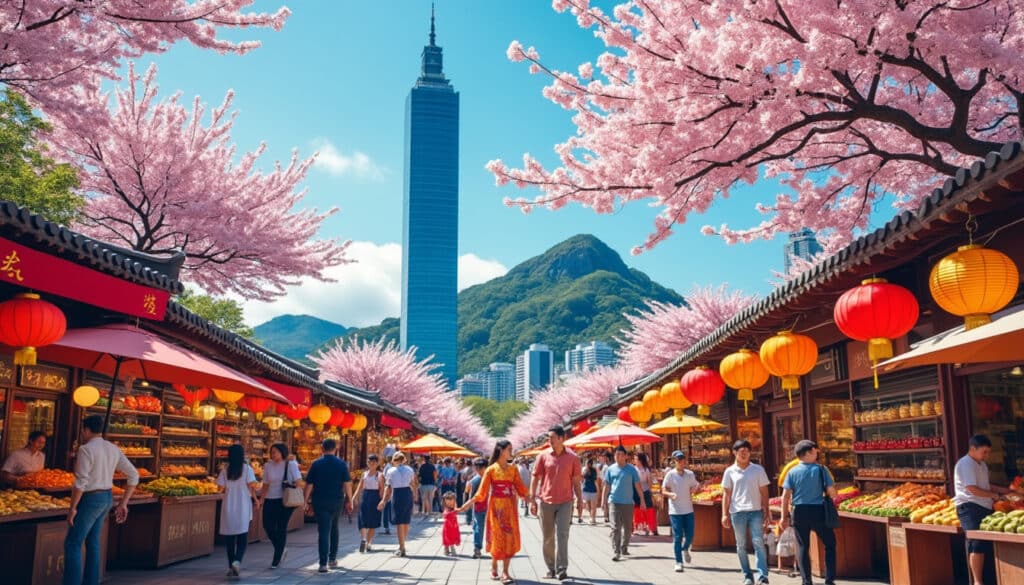
Fun Facts & Curiosities About Taipei
Welcome to the captivating world of Taipei, where tradition and modernity coexist harmoniously in Taiwan’s bustling capital. Through this exploration, we’ll uncover some intriguing facts and curiosities about Taipei that range from its architectural wonders to its rich culinary scene.…
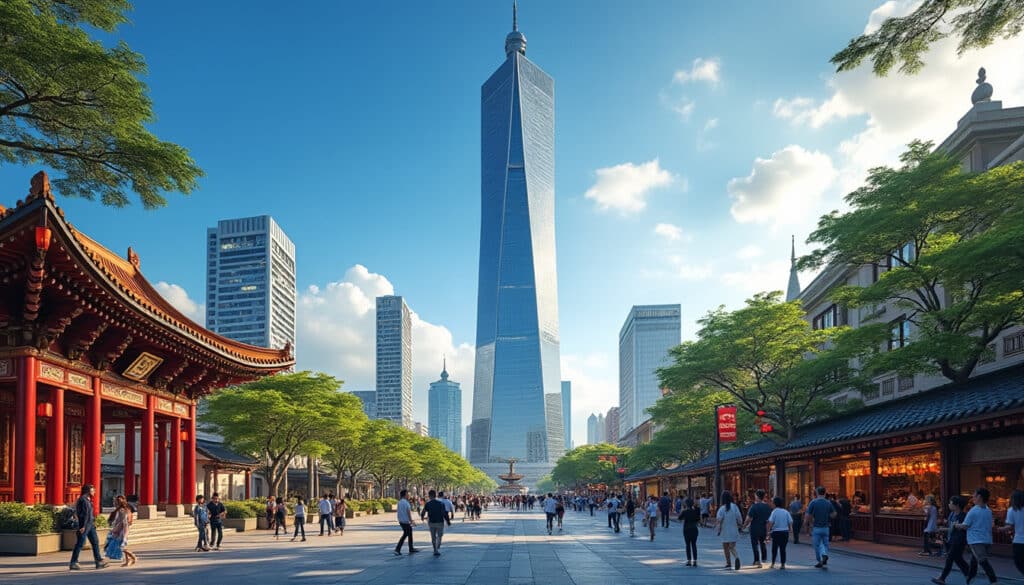
Architecture and urban features of Taipei
Taipei, the dynamic capital city of Taiwan, stands as a fascinating tapestry where past and present seamlessly intertwine. This metropolis is renowned for its distinctive architectural marvels and vibrant urban landscapes that echo with stories from ancient times while embracing…
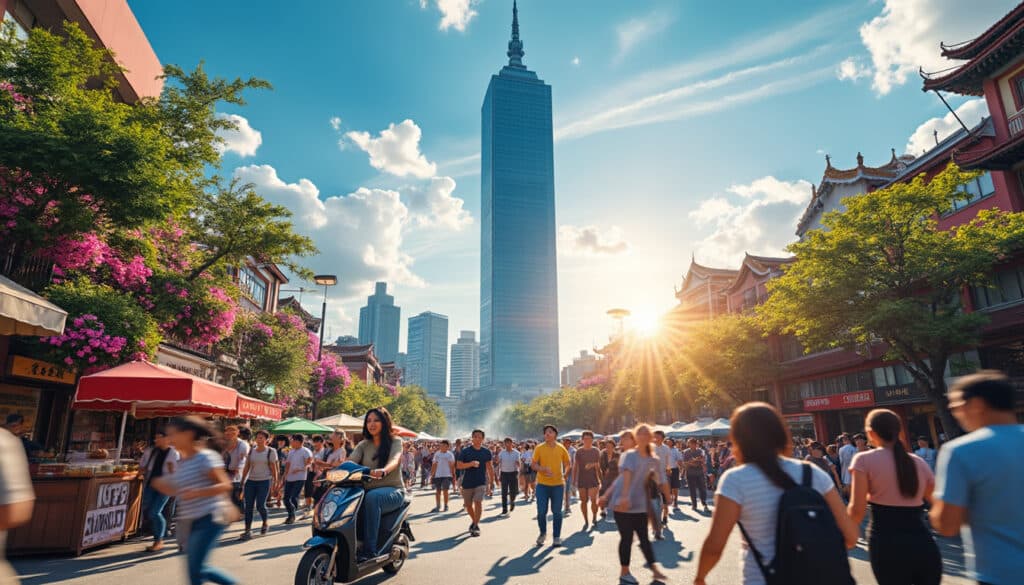
Taipei is a city where modernity intertwines with tradition, offering residents and visitors alike a vibrant blend of city life, cultural heritage, and culinary wonders. Known for its friendliness, convenience, and affordability compared to other East Asian cities, Taipei stands…
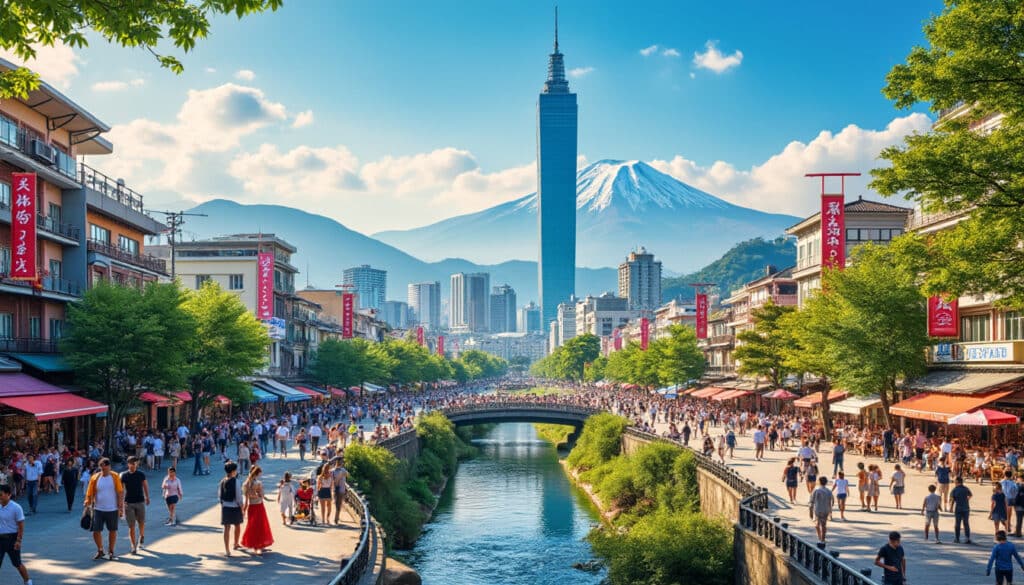
Demographics and geography of Taipei
Taipei, the bustling capital city of Taiwan, is a vibrant metropolis brimming with cultural richness and historical significance. Nestled within mountainous terrains and crisscrossed by rivers, Taipei is strategically situated on the northern edge of the island, serving as the…
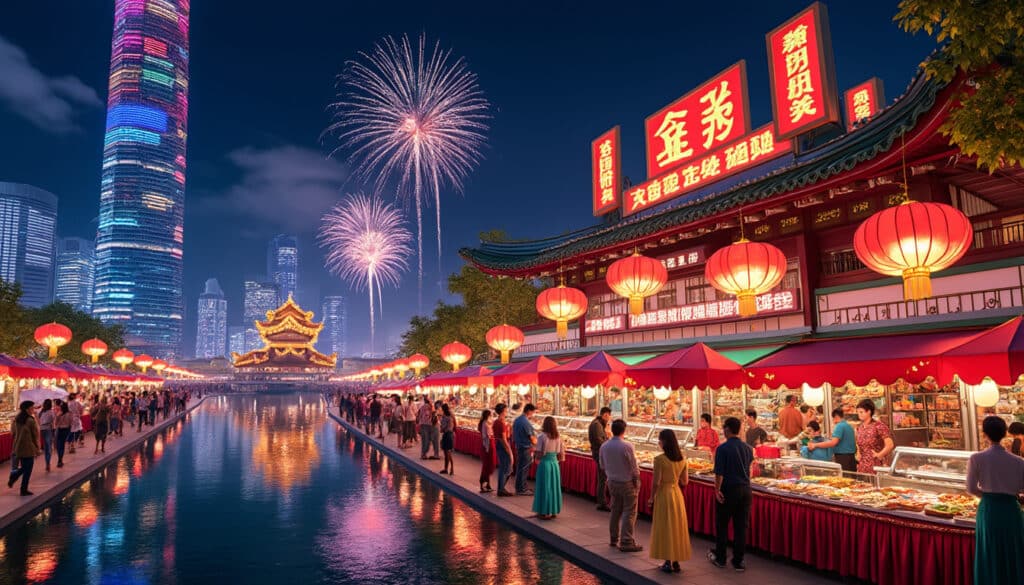
Holidays and celebrations in Taipei
🌟 Taipei, bustling with vibrant life and rich traditions, offers a captivating experience through its holidays and celebrations. From the sparkling lights of the Taipei Lantern Festival to the harmonious gatherings of the Mid-Autumn Festival, every event provides a glimpse…
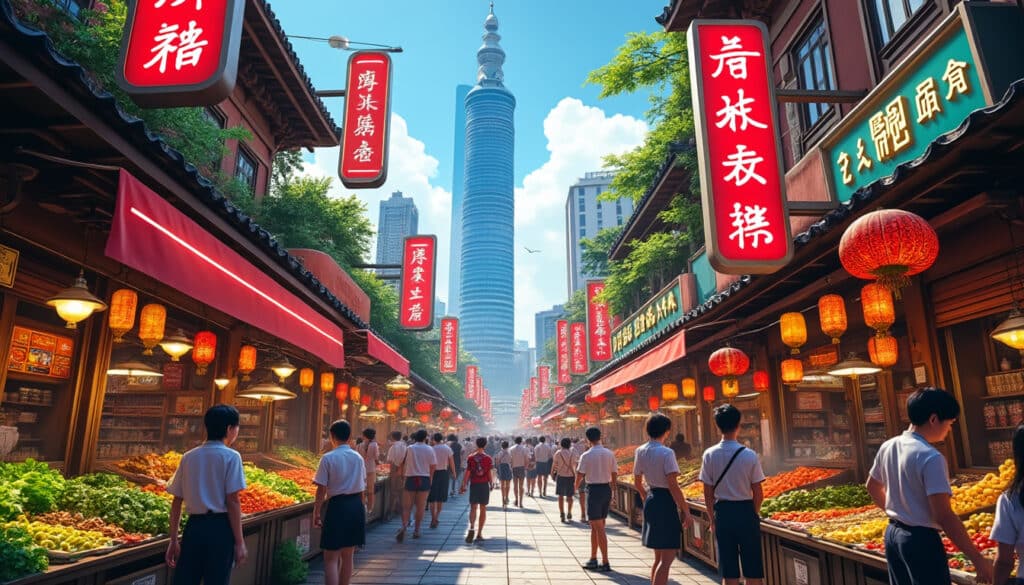
Language and spelling of Taipei
Taipei, the vibrant heart of Taiwan, is more than just a bustling metropolis known for its stunning skyline and cultural heritage. It’s a city where languages intertwine to create a unique linguistic tapestry reflective of Taiwan’s cultural history and diversity.…
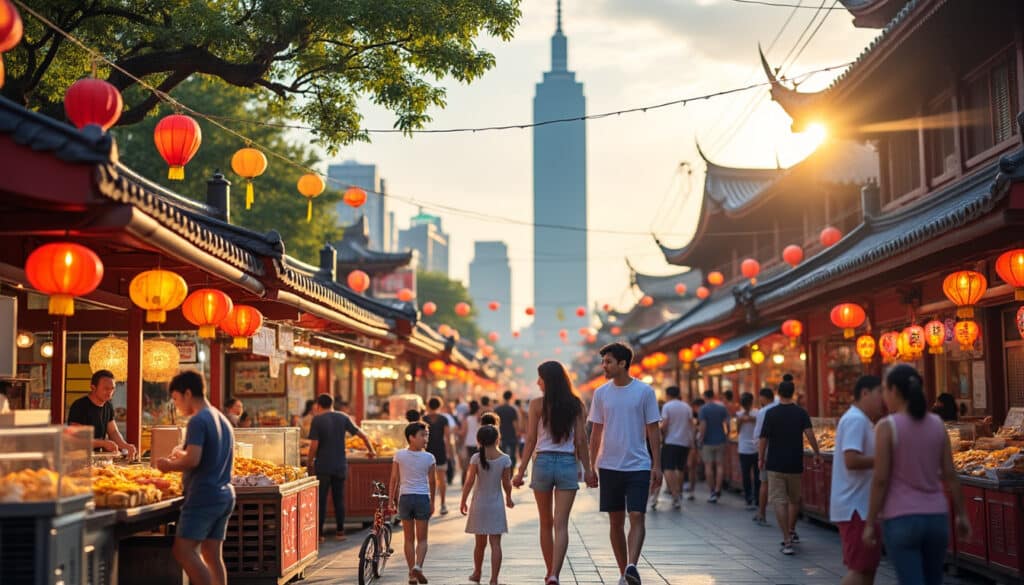
Local tips for tourists in Taipei
Exploring a vibrant city like Taipei offers an exhilarating mix of cultural heritage, gastronomy, and urban life. Whether you’re drawn by the bustling night markets, the towering Taipei 101, or the serenity of historical temples, Taipei promises diverse experiences for…
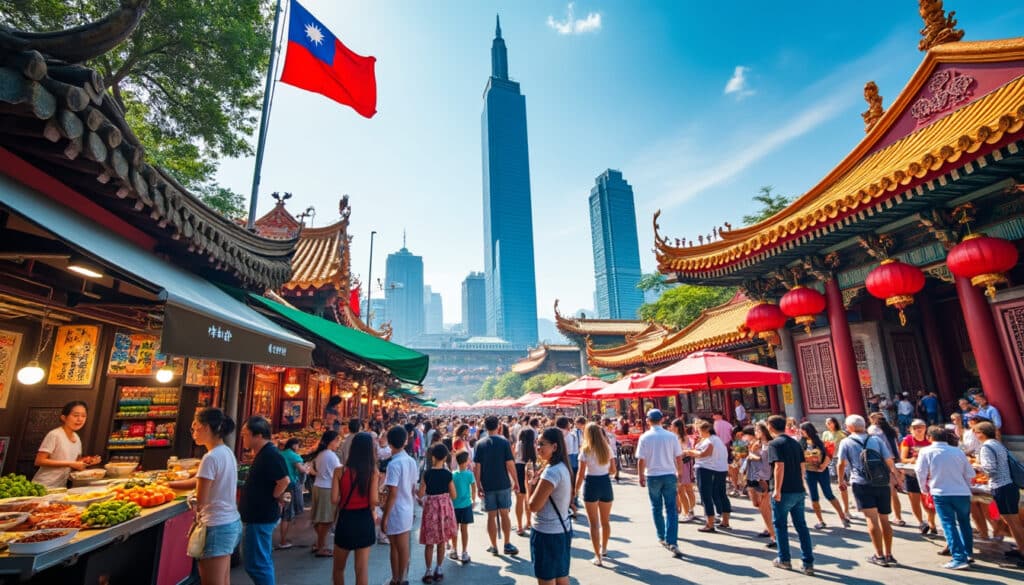
Names, flags, and identity of Taipei
The dynamic cityscape of Taipei is woven with a rich tapestry of history, culture, and identity that is deeply embedded in its names, flags, and the nuances of its identity. As the capital city of Taiwan, Taipei serves not only…
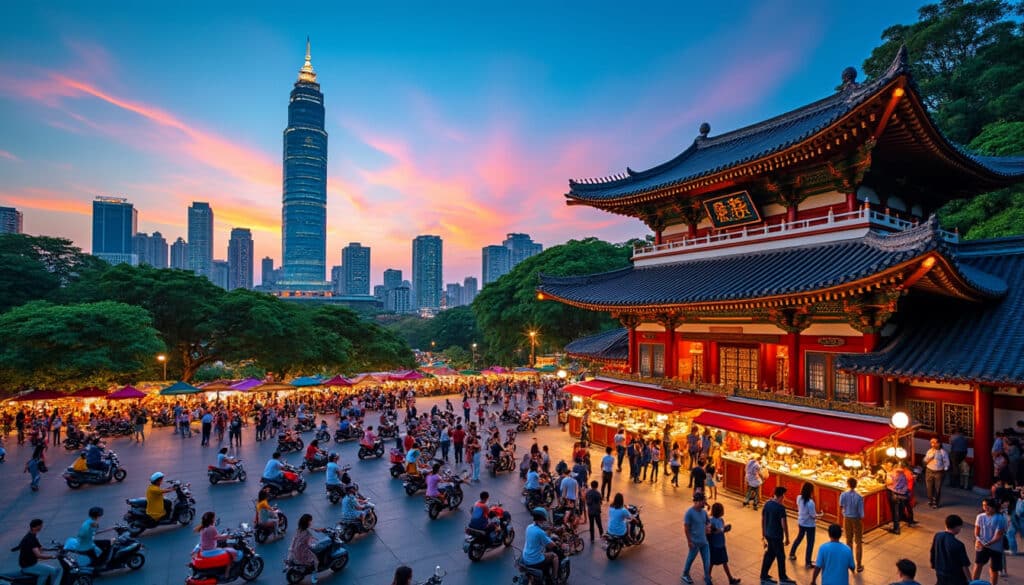
Reputation and identity of Taipei
With its unique blend of modernity, tradition, and a dynamic cultural landscape, Taipei stands as one of the most interesting cities in Asia, drawing visitors and expats alike. As the vibrant capital of Taiwan, it holds a distinct reputation shaped…
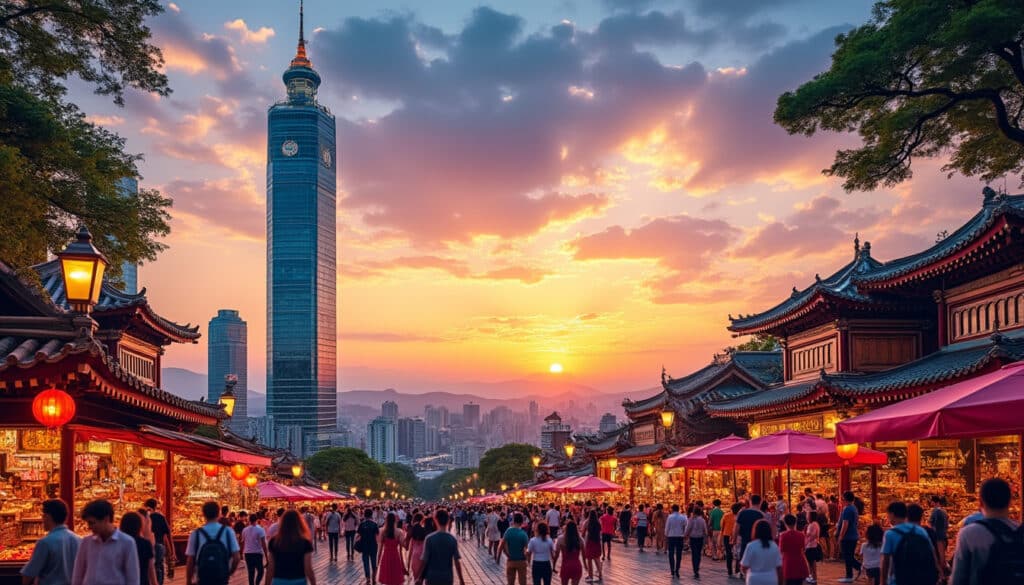
With the hustle and bustle of city life, understanding the time and time zone in Taipei is crucial for both residents and travelers. Taipei, Taiwan’s vibrant capital, operates under a unique system of timekeeping that reflects both its geographical location…
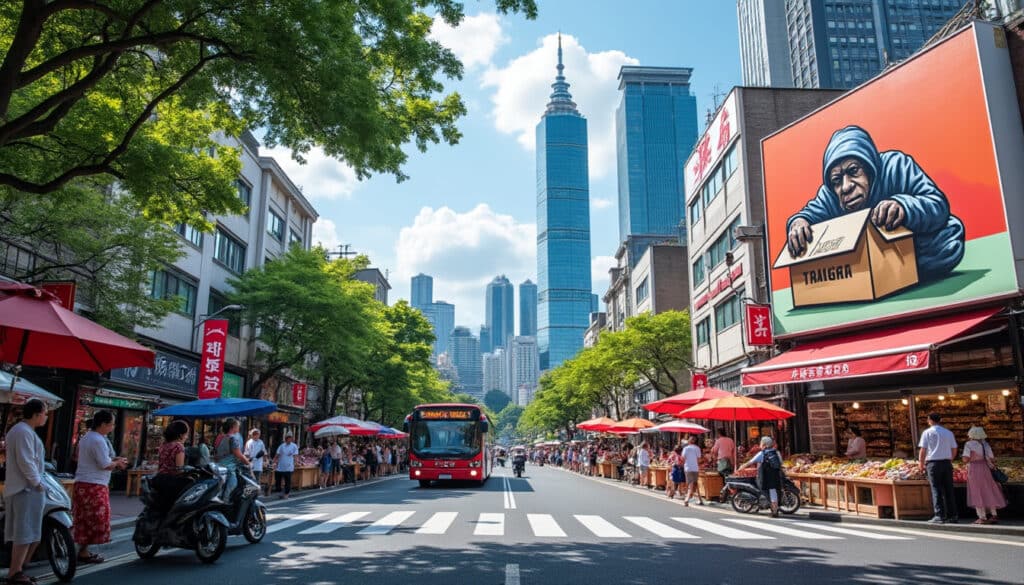
Unusual facts and social issues in Taipei
Taipei, a city renowned for its vibrant culture and dynamic urban life, offers a compelling mix of modernity and tradition. From distinctive social phenomena to interesting historical facts, this city is a fascinating blend of the new and old. Nestled…
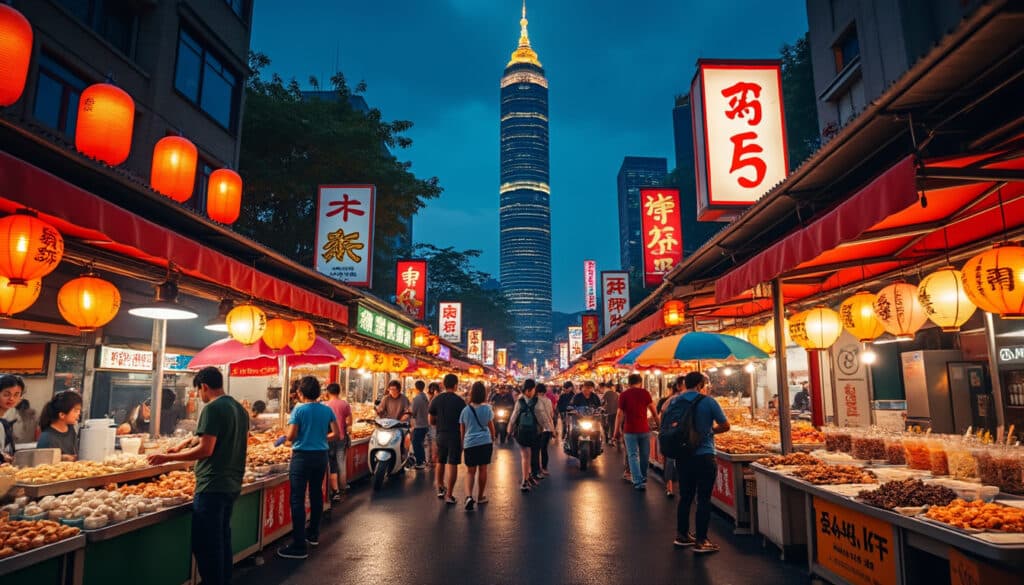
What does Taipei look, smell, feel like?
Nestled in the heart of Taiwan, Taipei is a vibrant city, pulsating with energy and overflowing with cultural richness. As the sun sets behind the skyline dominated by the towering Taipei 101, the city transitions into a dazzling landscape of…

